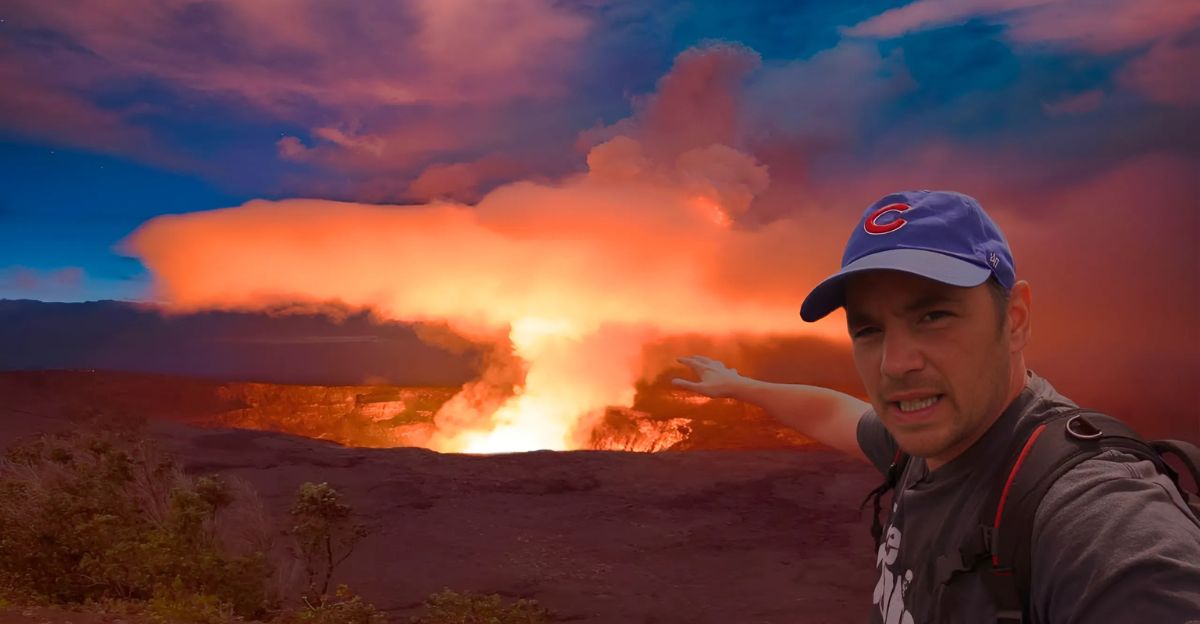
As of January 17, 2025, the United States Geological Survey (USGS) has identified several volcanoes exhibiting signs of unrest, indicating potential eruptions within the year. Monitoring these volcanoes is crucial for public safety and preparedness. This article highlights ten American volcanoes currently under close observation due to increased activity.
Kīlauea, Hawaii
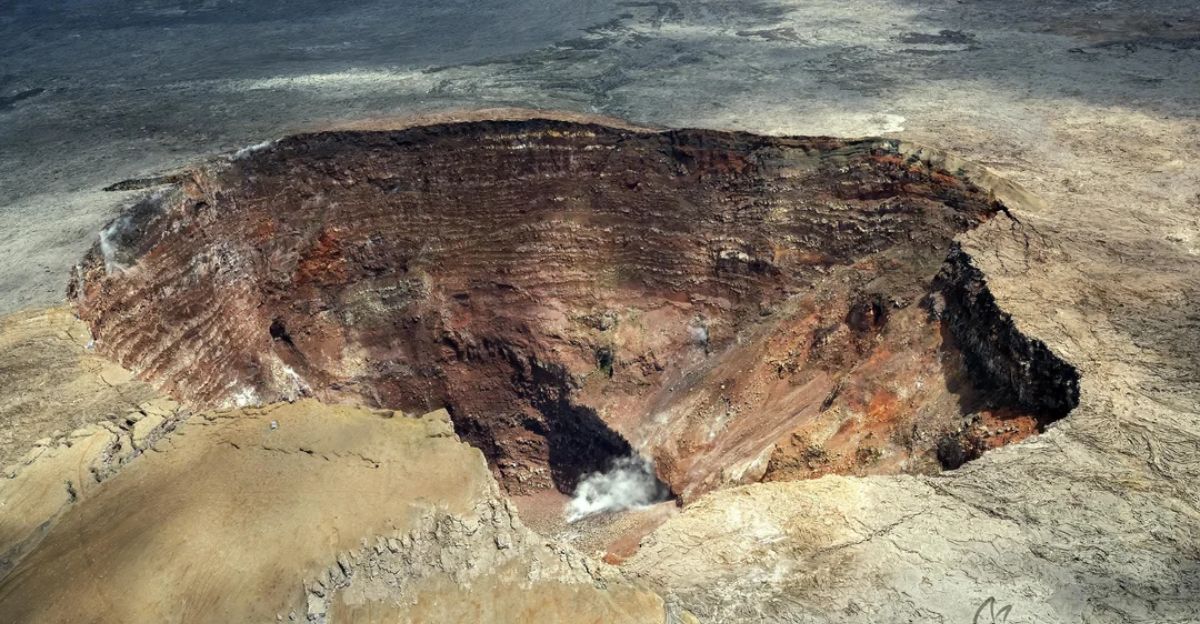
Kīlauea, located on Hawaii’s Big Island, resumed its eruption on January 15, 2025, with lava fountains reaching heights of approximately 200 feet.
The Hawaiian Volcano Observatory (HVO) elevated Kīlauea’s alert level to WARNING and its aviation color code to RED, indicating a significant eruption in progress.
Residents and visitors are advised to stay informed through official channels.
Mount Spurr, Alaska
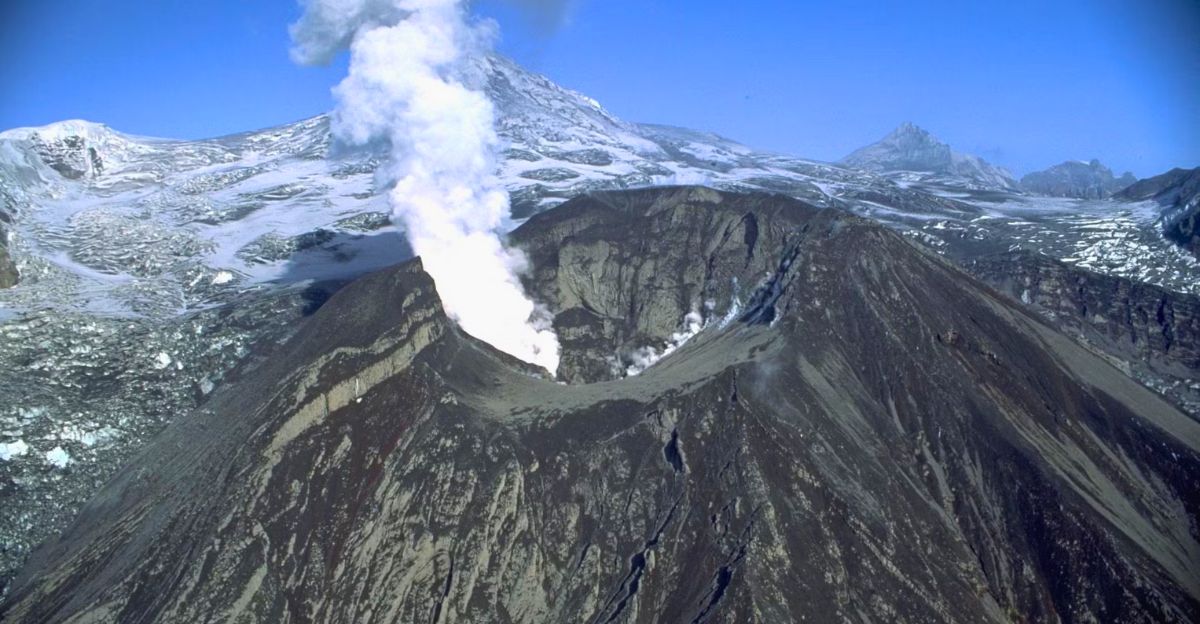
Mount Spurr, situated approximately 80 miles west of Anchorage, has exhibited increased seismic activity, with shallow volcanic earthquakes detected beneath the volcano over the past day.
The Alaska Volcano Observatory (AVO) has raised the alert level to ADVISORY and the aviation color code to YELLOW, reflecting the elevated unrest. While no eruption is imminent, continued monitoring is essential.
Great Sitkin Volcano, Alaska
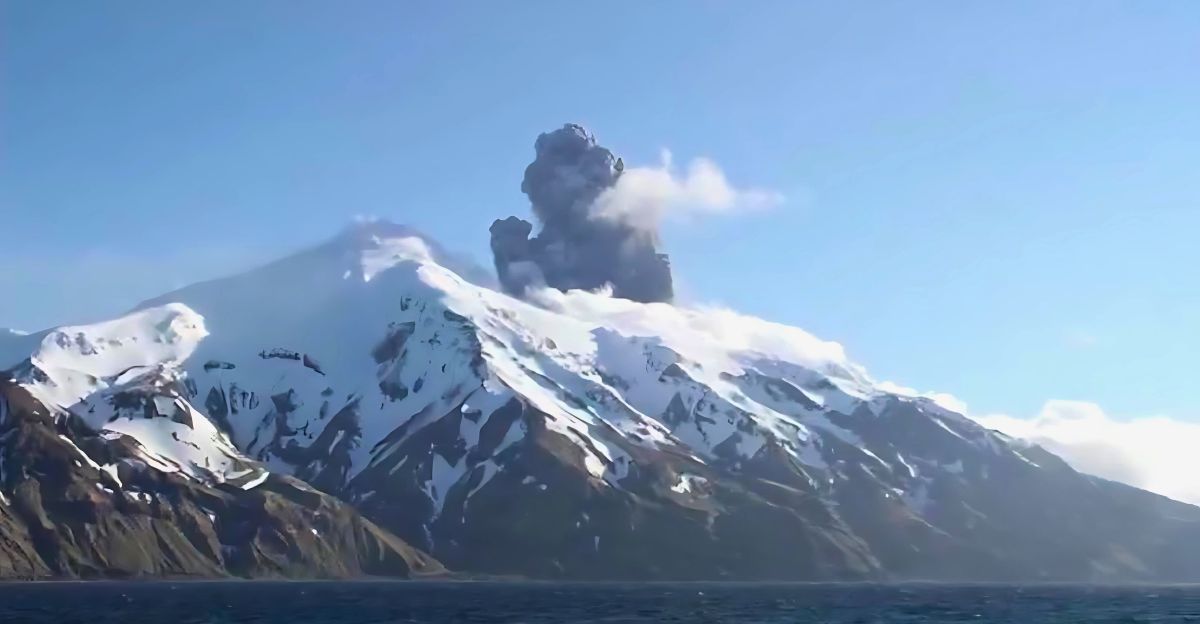
Great Sitkin Volcano, located in the Aleutian Islands, continues to show signs of activity, with lava slowly erupting in the summit crater.
The AVO has maintained the alert level at WATCH and the aviation color code at ORANGE, indicating a heightened potential for eruption. Mariners and pilots operating in the vicinity should exercise caution.
Mauna Loa, Hawaii
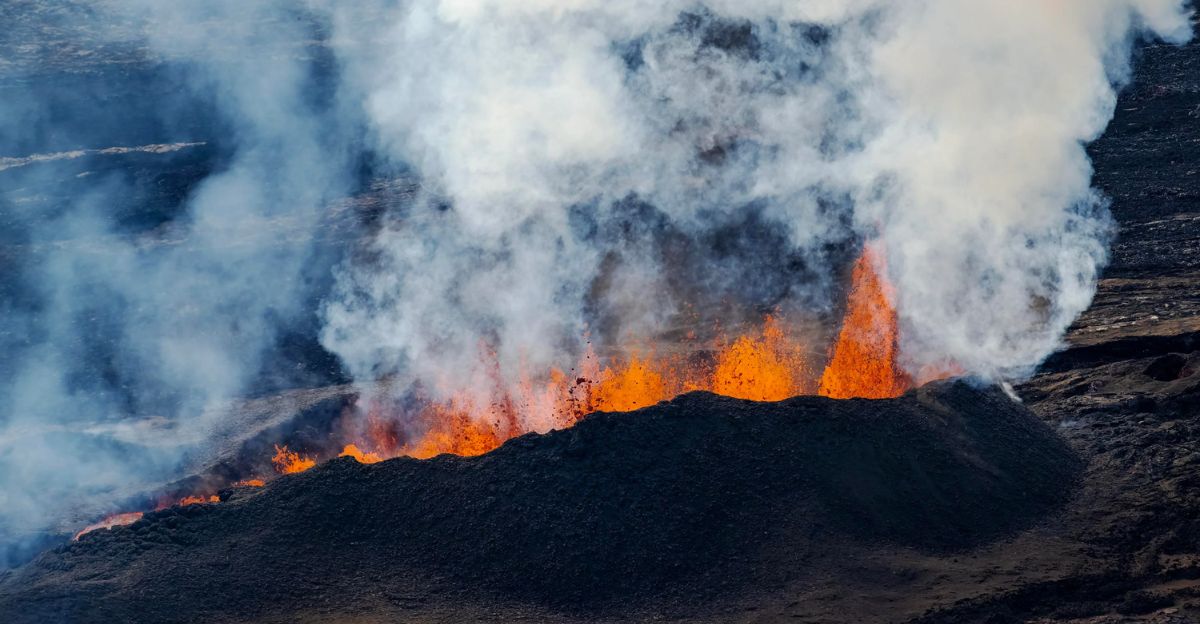
Mauna Loa, the world’s largest active volcano, has been experiencing elevated unrest, characterized by increased seismicity and ground deformation. The HVO has set the volcano’s alert level to ADVISORY and the aviation color code to YELLOW.
Although an eruption is not imminent, residents should review emergency plans due to Mauna Loa’s history of rapid lava flows.
Mount Rainier, Washington

Mount Rainier, standing at 14,411 feet in Washington State, is under continuous observation due to its potential hazards. The USGS has classified it as a “very high threat potential” volcano.
While currently at a NORMAL alert level, its proximity to populated areas necessitates vigilant monitoring for any signs of unrest.
Mount St. Helens, Washington
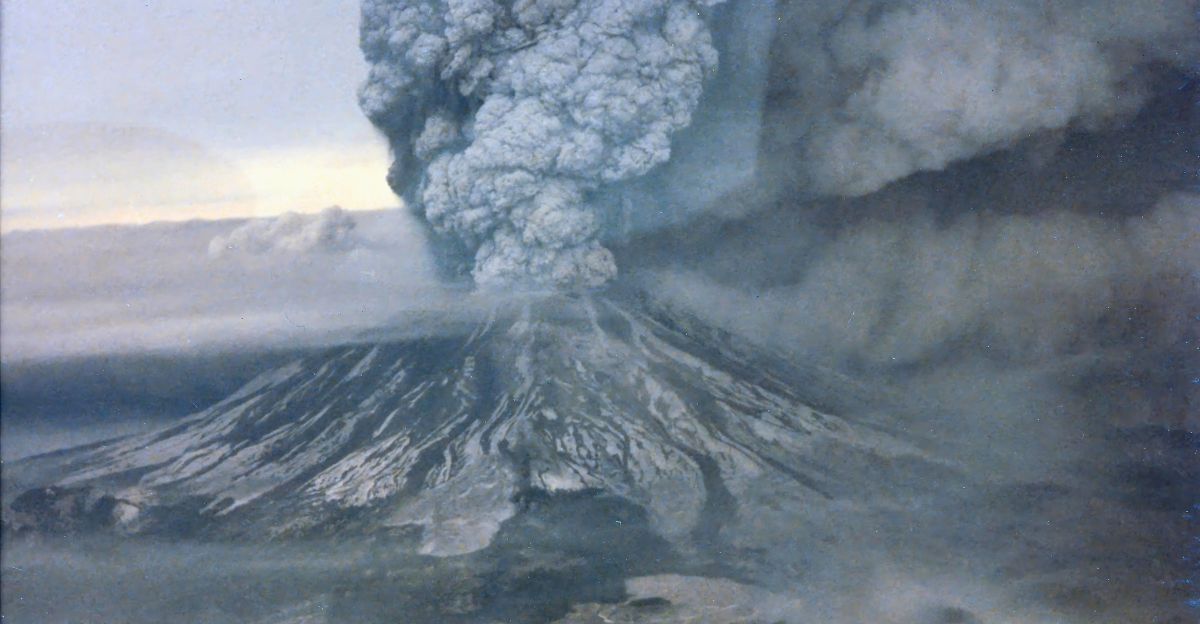
Mount St. Helens, infamous for its catastrophic 1980 eruption, remains one of the most closely watched volcanoes in the United States. The USGS has also classified it as a “very high threat potential” volcano.
Currently, it is at a NORMAL alert level, but its active history warrants ongoing surveillance for any changes in activity.
Mount Hood, Oregon

Mount Hood, Oregon’s highest peak, is monitored by the Cascades Volcano Observatory (CVO). The USGS has designated it as a “very high threat potential” volcano.
Although presently at a NORMAL alert level, its history of periodic activity and proximity to communities make it a volcano of concern.
Lassen Volcanic Center, California

The Lassen Volcanic Center in Northern California is under the jurisdiction of the California Volcano Observatory (CalVO). The USGS has ranked it as a “very high threat potential” volcano.
Currently at a NORMAL alert level, it remains a focus of monitoring efforts due to its active geothermal features and eruptive history.
Mount Shasta, California
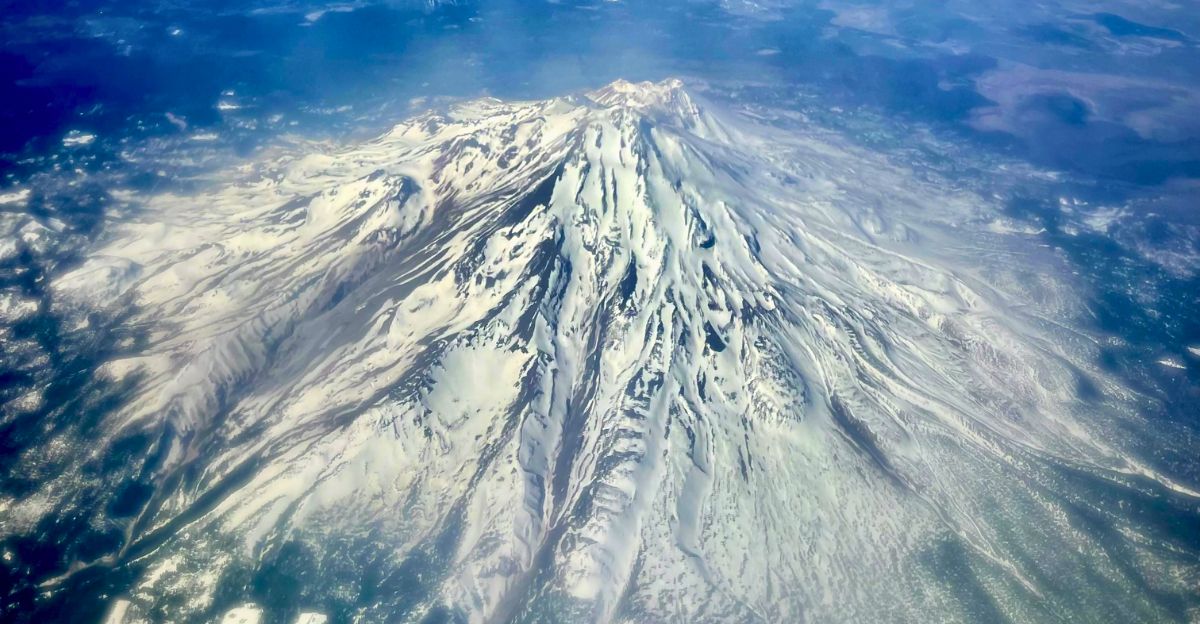
Mount Shasta, a prominent stratovolcano in California, is also monitored by CalVO. The USGS has assessed it as a “very high threat potential” volcano.
While currently at a NORMAL alert level, its potential for explosive eruptions necessitates continuous observation.
Yellowstone Caldera, Wyoming
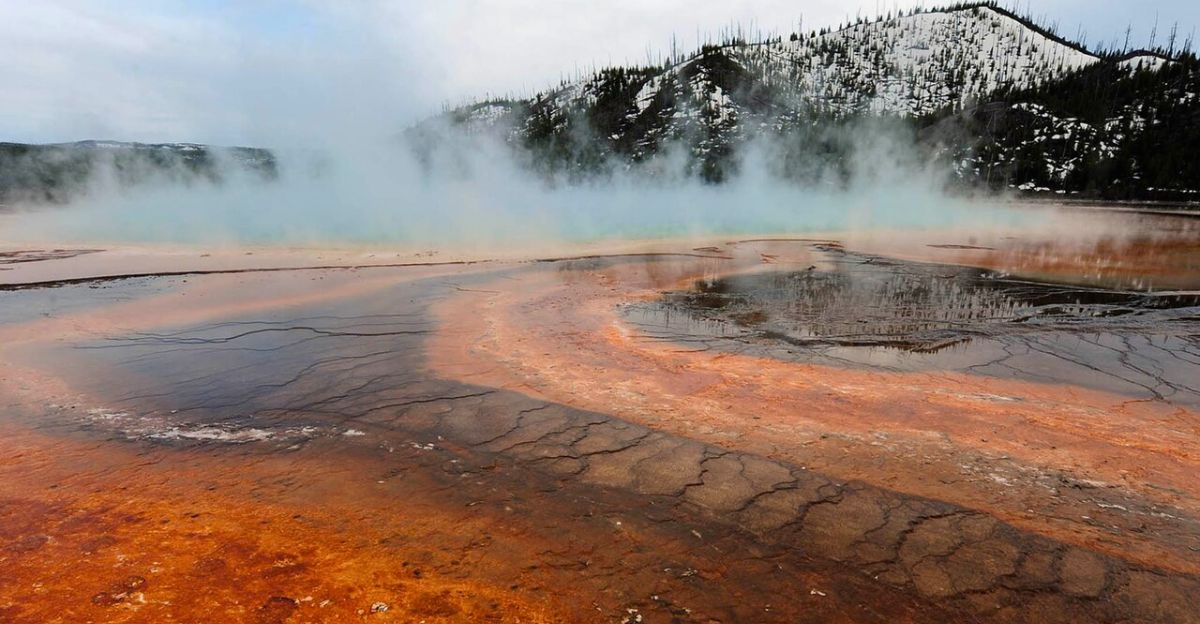
The Yellowstone Caldera, often referred to as a supervolcano, has shown unusual activity, with the magma reservoir beneath Yellowstone National Park exhibiting movement.
Despite this, scientists believe that a catastrophic eruption is not imminent, as current magma concentrations are not sufficient to cause a significant eruption. Nonetheless, the area remains under close observation.
Keep An Eye Open
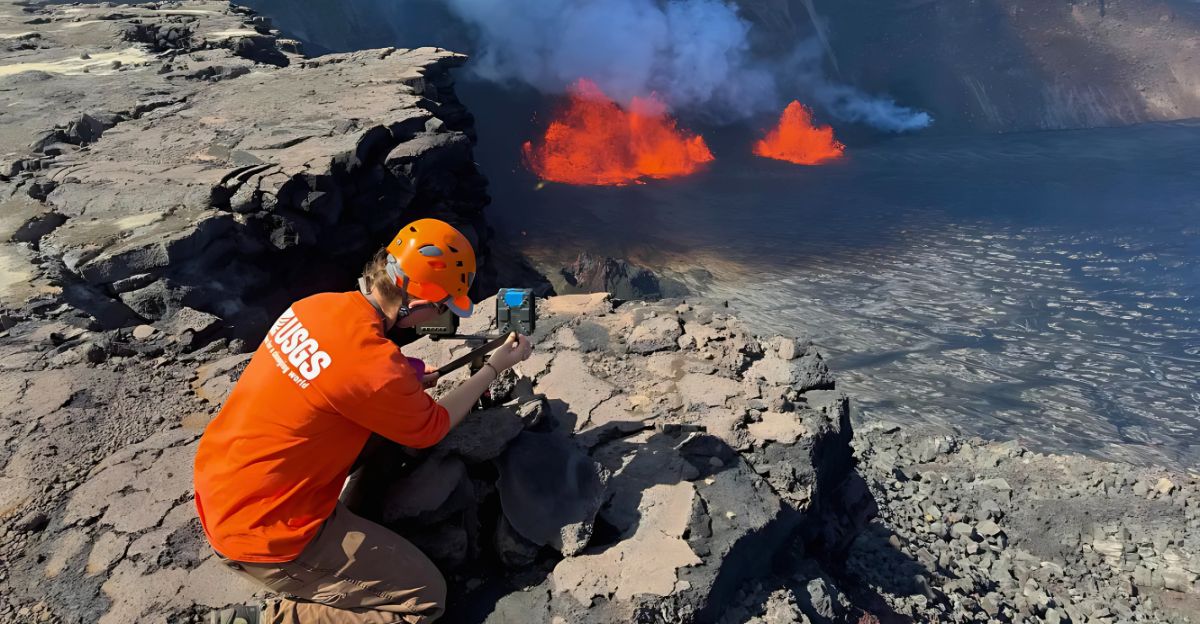
The USGS continues to monitor these and other volcanoes across the United States to provide timely warnings and information. Public awareness and preparedness are essential in mitigating the risks associated with volcanic activity. Staying informed through official channels and understanding the potential hazards can help communities respond effectively in the event of an eruption.
As volcanic activity can change rapidly, it is crucial for residents and visitors in volcanic regions to remain vigilant. By adhering to guidance from authorities and staying updated on volcanic alerts, individuals can ensure their safety and contribute to community resilience in the face of natural hazards.
As of January 17, 2025, the United States Geological Survey (USGS) has identified several volcanoes exhibiting signs of unrest, indicating potential eruptions within the year. Monitoring these volcanoes is crucial for public safety and preparedness. This article highlights ten American volcanoes currently under close observation due to increased activity.
Explore more of our trending stories and hit Follow to keep them coming to your feed!

Don’t miss out on more stories like this! Hit the Follow button at the top of this article to stay updated with the latest news. Share your thoughts in the comments—we’d love to hear from you!







